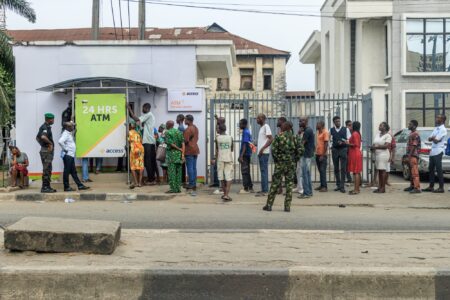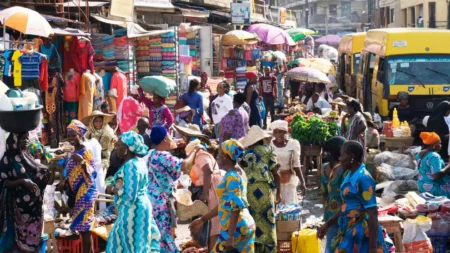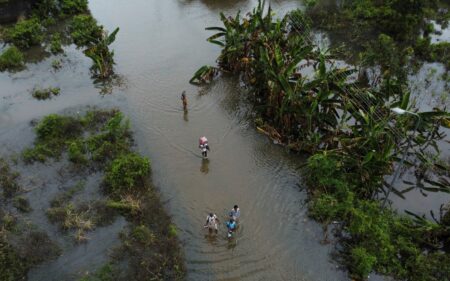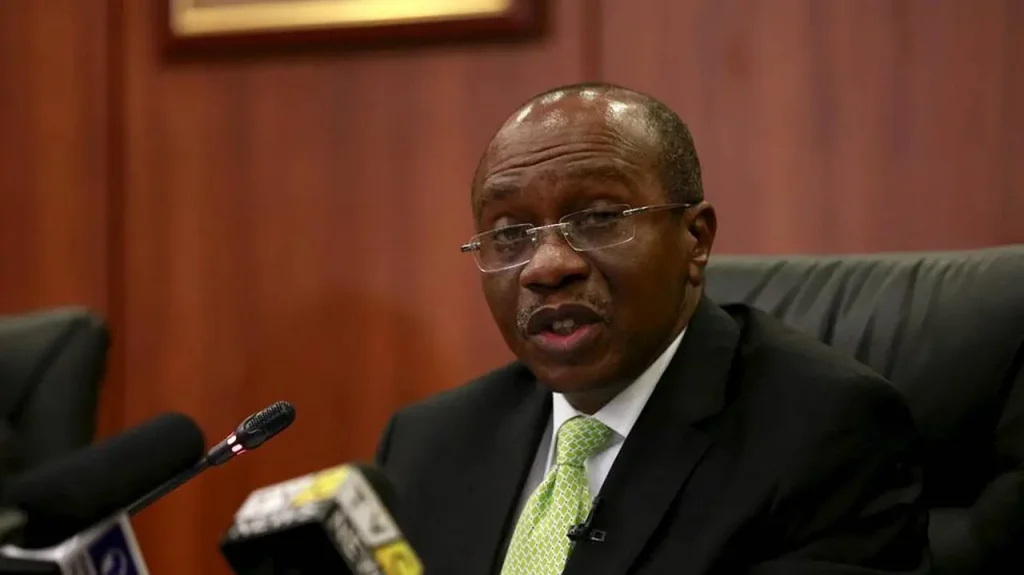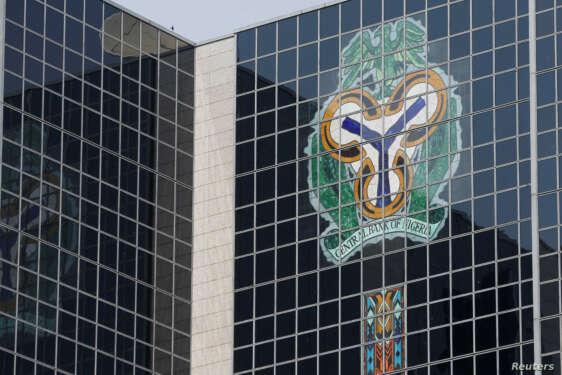- Africa’s new dawn: the rising role of digital and AI in agriculture
- Can Dangote Refinery Transform Africa Energy Ambition
- Gallup Survey: 80 per cent of Kenyan Workers Are Disengaged and Seek New Opportunities
- Madagascar Man Freed from 5KG Tumor After 15-Year Struggle
- How women in Africa are perceived and treated
- Sugar consumption in Kenya to Increase to 1.23 Million Tonnes
- Can Somalia and Turkey Oil deal Bring Change in Somaliland
- Remittances to Kenya dropped to $371.6 million in June, marking a six month low
Browsing: Central Bank of Nigeria (CBN)
- The Central Bank of Nigeria has decided to increase the minimum capital requirement for lenders to bolster the country’s economy.
- Nigerian banks now face weaker capital ratios and higher impaired loans.
- The last time Nigeria recapitalised its banking sector dates back to 2004.
Minimum capital requirement for lenders
Following the surge in inflation levels, a deteriorating economy, and the plummeting of the Naira, the CBN has decided to increase the minimum capital requirement for lenders to bolster the country’s economy.
asu football jersey
detroit lions jersey
asu football jersey
Florida state seminars jerseys
custom made football jerseys
asu football jersey
College Football Jerseys
Florida state seminars jerseys
asu football jersey
Iowa State Football Uniforms
asu football jersey
Iowa State Football Uniforms
ohio state jersey
asu football jersey
Under the new regulations, the Central Bank of Nigeria has raised the capital threshold for international banks to $359 million …
- Like many other countries, the IMF has noted that Nigeria’s economy faces a complex external environment and wide-ranging domestic challenges.
- External financing (market and official) is scarce, and global food prices have surged, reflecting the repercussions of conflict and geo-economic fragmentation.
- Per-capita growth in Nigeria has stalled, and poverty and food insecurity are high, exacerbating the cost-of-living crisis, according to the global lender.
Nigeria’s economy is not yet out of the woods, the International Monetary Fund (IMF) has indicated, with a potential economic crisis despite government interventions to improve the economy.
This is even as the country’s real GDP is projected to grow by three per cent this year compared to last year’s projection of 2.9 per cent.
Like many other countries, the IMF has noted that Nigeria faces a complex external environment and wide-ranging domestic challenges.
External financing (market and official) is scarce, and global food prices have surged, …
- Climate Change-related flooding saw large swathes of farmlands and settlement areas in Nigeria’s coastal Niger Delta flooded by December 2022.
- Boko Haram terrorists, bandits, and armed herders have forced at least 78,000 farmers to abandon their farmland.
- Over the past eight years, an estimated 6,000 Benue people reported killed while two million farmers were displaced.
Nigeria is battling a perfect storm with a double whammy of climate change and conflict exacerbating the country’s food crisis. Currently an estimated 25.3 million people in Nigeria are facing food crisis partly worsened by the ongoing flooding throughout the country.
As of December 2022, large swathes of farmland and settlements in Nigeria’s coastal Niger Delta region flood. The flooding saw the closure of schools, leaving hundreds of children out of learning centres as the disaster took a toll.
Climate change worsening Nigeria’s food crisis
Nigeria, which with 222.2 million people is Africa’s most populous …
Nigerian presidential contenders must confront persistent insecurity, chronic unemployment, and a deteriorating economic outlook. Bola Tinubu outlined his vision before the Nigeria elections in 2023 in an 80-page paper released by President Muhammadu Buhari at a lavish ceremony on October 21, 2022.…
The Central Bank of Nigeria (CBN) has accorded a Switching and Processing License to Flutterwave, an African payments technology business. This is widely regarded as the CBN’s most significant payment processing licence.
Flutterwave can provide customers with transaction switching and card processing services with this licence. Other benefits include non-bank acquisition, agency banking, and payment gateways.
- The Central Bank of Nigeria (CBN) has accorded a Switching and Processing License to Flutterwave, an African payments technology business.
- Flutterwave can provide customers with transaction switching and card processing services with this licence.
- Flutterwave is permitted to facilitate transactions between banks, fintechs, and other financial institutions thanks to the Switching and Processing licence
- Additionally, the company can handle card transactions, participate in agency banking, and provide payment services directly to customers
Flutterwave is permitted to facilitate transactions between banks, fintechs, and other financial institutions thanks to the Switching and Processing licence.
Additionally, …
The recent Nigeria’s central bank rise of benchmark interest was the first one implemented by the monetary policy council of the central bank since July of 2016. Prior to that time, the apex bank favoured lower interest rates in the hope that it would encourage lending.
To counteract the persistently increasing cost of goods and services, however, the world’s most influential central bank has followed the pattern of other central banks throughout the world and raised interest rates.
Pundits are led to assume that the policies of the CBN have little to no influence since, unlike in other economies across the world, the rising inflation in Nigeria is driven more by supply than by demand.…
On Friday last week, the Central Bank of Nigeria hit headlines after stopping banks and financial institutions from dealing in Cryptocurrency or facilitating payment for Cryptocurrency exchange.
People’s reactions
The move sparked outrage from mostly young people in a country that is the world’s second-biggest user of virtual currencies like Bitcoins.
CBN’s Position on Cryptocurrency
CBN has, however, come out to explain why it banned cryptocurrency-related transactions in the country.
According to the apex bank, digital currency is used for money laundering and terrorism.
The regulator said this in a statement Sunday, days after affirming a 2017 directive to financial institutions to block cryptocurrency accounts.
In a statement issued by Osita Nwanisobi, acting director, corporate communications, the ban on such transactions will not have any negative impact on fintech.
Also Read: Why Bank of Tanzania is worried about cryptocurrencies
CBN maintained that its position on cryptocurrencies is not a peculiar …





